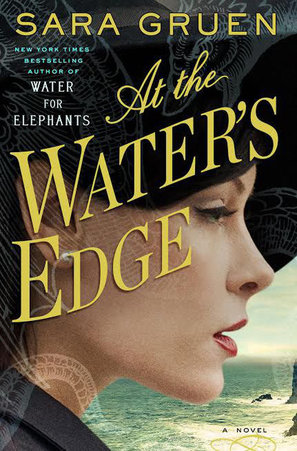 Written by Lauryn Smith Given that Sara Gruen authored “Water for Elephants” (one of my favorite books, in case you missed it!), there was no question that a review of her latest novel “At the Water’s Edge” would appear on BNR sooner or later. After a three-month hiatus, the time has come. Though not as addictive as “Water for Elephants,” “At the Water’s Edge” is a pleasant read. It is not much of a page-turner, and it includes a host of spoiled, rather dull characters, but overall, it is a smooth, interesting, well-written narrative with occasional complexity. Like some of Gruen’s previous novels, “At the Water’s Edge” is a period piece, this time set in the Scottish Highlands during the 1940s, right in the midst of World War II. The story follows the life of a rambunctious, privileged young Philadelphian woman named Madeline (Maddie) Hyde. After getting out of hand at one too many social gatherings, Maddie and her husband, Ellis, are financially cut off from Ellis’s family. Given their predicament, Maddie loyally accompanies her husband, along with their close friend Hank, on a trip to Scotland to complete a mission the men believe will ultimately restore the couple’s determinedly reckless lifestyle.
0 Comments
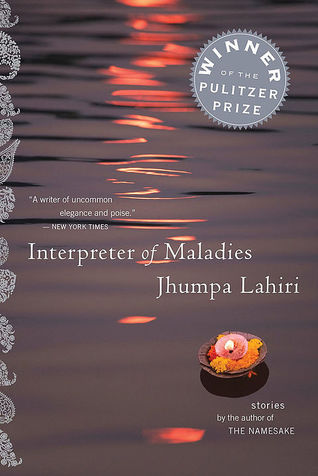 Written by Lauryn Smith Jhumpa Lahiri is one of the most talented writers I have ever had the pleasure of reading. I have now read her book of fictional short stories “Interpreter of Maladies” three times, and the latest instance has only reinforced my admiration. Lahiri’s writing is beautiful and effortless. Crafting a short story is no easy feat, yet each within the “Interpreter of Maladies” collection is stunning. The title story involves the Das family, composed of a first-generation American couple of Indian descent and three young children, as they tour India. Lahiri tells the story from the perspective of Mr. Kapasi, the family’s local tour guide and driver. It is soon revealed to the family that Mr. Kapasi also works as an interpreter for a physician who does not speak his patient’s languages. As he is able to speak many of the languages of India, Mr. Kapasi translates people’s woes for them, a skill for which Mrs. Das deems him an “interpreter of maladies.” Something about the Das family captivates Mr. Kapasi. He finds Mrs. Das particularly enamoring, partly due to of the special attention she pays him relative to her husband and children. Yet as she continues to romanticize Mr. Kapasi's role of medical confidant, she begins to reveal her own unexpected confidences, and for Mr. Kapasi, the situation turns sour. 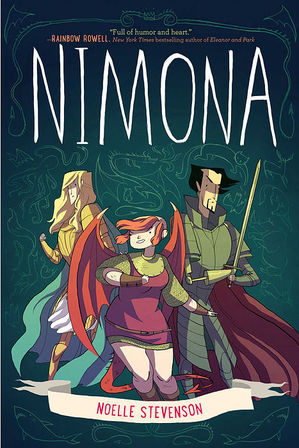 Written by Lauryn Smith The first and last graphic novel I read was for a contemporary fiction class in college. From that experience, I learned that there are some things that pictures, or a combination of pictures and text, can better accomplish than text alone. I used to think that graphic novels were only for young readers, but I have since changed my mind—graphic novels can actually be full of meaning. So when Reviewer Beth Winters suggested I read “Nimona” by Noelle Stevenson, I agreed. I was not disappointed. "Nimona,” which falls in the young adult genre, is a full-color graphic novel based on Stevenson’s web comic of the same name. In this work of fiction, there are heroes and villains and dragons and science and contemporary ideology. Essentially, Stevenson’s story consists of classic premises sprinkled with modernity. The eponymous character, young in relation to the book’s other characters, one day shows up at the home of bad guy Lord Ballister Blackheart asking to be his sidekick. Reluctantly, Blackheart agrees. He and Nimona, who turns out to be a skilled shapeshifter, make and execute "villainous" plans, one of which leads them to discover that the powerful Institution of Law Enforcement is up to no good. Complicating matters is the fact that Blackheart’s once good friend Sir Ambrosius Goldenloin works for the Institution. Naturally, chaos ensues. 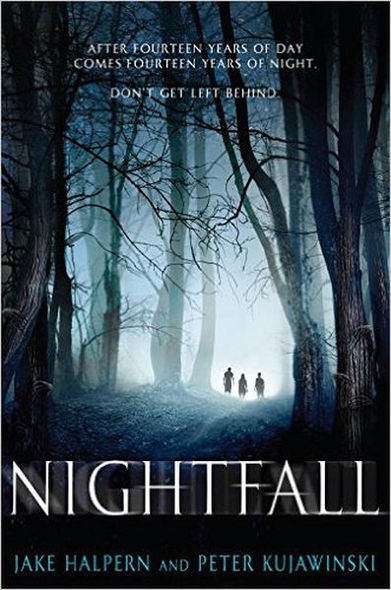 Written by Lauryn Smith One book, two authors. I must have been living under a rock, because apparently stories written by multiple authors are relatively common. Case in point: "Nightfall" by Jake Halpern and Peter Kujawinski. (Shout out to G.P. Putnam's Sons Books for Young Readers for introducing me to "Nightfall," my first dual-authored novel. Thank you for the free copy!) “Nightfall” is a piece of young adult fiction that portrays the peculiarities of the remote, forested island of Bliss. On the island, Sunrise comes only every 28 years, resulting in 14 years of Day and 14 years of Night. The island's residents spend weeks preparing for Nightfall, completing a number of odd rituals, such as removing locks from houses, leaving doors partially open and strategically rearranging furniture. Come Nightfall, they hitch rides on furrier ships in order to flee to the Desert Lands, where they will live for the 14-year interim. That is just how things work on Bliss, no questions asked. Any and all reasoning is shrouded in mystery. No one understands or speaks of what happens on the island during the cold years of Night, but everyone knows that the place should be avoided. This Nightfall, however, an unfortunate few are left behind. Once the furrier boats take off, three teens—Marin, her twin brother Kana and their mutual friend Line—are left to their own devices, and they come to understand the mysteries of the island uncomfortably well. 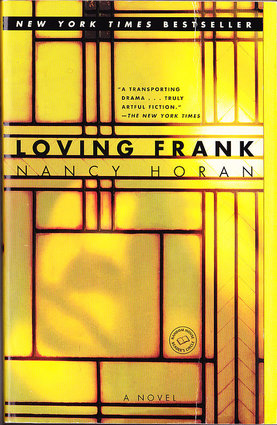 Written by Lauryn Smith If you have not already, I suggest picking up a copy of Nancy Horan's "Loving Frank" so that you, like so many architecture aficionados, can come to understand the man who is Frank Lloyd Wright. “Loving Frank” is Horan’s first historical novel. In it, she tells Wright's tale through the lens of Mamah Borthwick Cheney, who is best known for her love affair with the famed architect. The book provides a unique glimpse into Wright's life, but Horan demonstrates that Mamah is also an interesting a character, and for reasons other than her scandalous romance with the man whom the American Institute of Architects would come to deem "the greatest American architect of all time." Horan gets points for doing two stand-out characters justice in one true-to-life novel. Told chronologically, “Loving Frank” begins in 1903, the year in which Wright is commissioned to design Mamah’s new home in Oak Park, which is just outside of Chicago. During the construction of the house, Mamah and Wright develop an attraction, an attraction that draws both from their respective spouses and children. Together they begin a physically and emotionally tumultuous journey, which comes to a tragic end. I desperately want to tell you what happens, but talk about a spoiler! Let's move on. 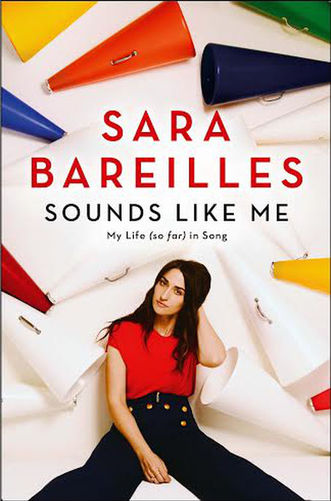 Written by Lauryn Smith Memoirs are not usually my thing—especially celebrity memoirs. The story always seems the same. Modest beginnings, anything-but-modest endings and a mix of hard work, faith and luck in between. Cliché. Naturally I was skeptical about singer-songwriter Sara Bareilles’s “Sounds Like Me,” a book I only learned about when Reviewer Beth Winters had me tag along to a lecture/book signing that was part of Bareilles’s book tour. During the lecture, I learned that Bareilles is delightfully down-to-earth, spunky and relatable. While reading her book, I learned that her writing demonstrates these same traits. It is worth saying that I did not know much about Bareilles or her music prior to reading “Sounds Like Me,” but I think that was good for me. I had no preconceived notions about Bareilles or her story, and by the end of the book, I possessed a degree of familiarity, which prompted voluntary exploration into her music and ideals, exploration catalyzed solely by pure interest. I went in with no expectations, and I came out searching for her albums on Spotify. 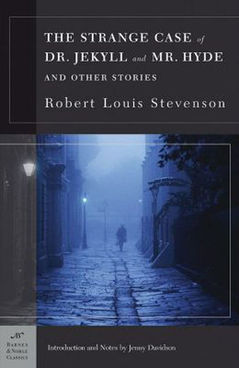 Written by Lauryn Smith Everyone knows Jekyll and Hyde. They have been portrayed everywhere, from Broadway’s stage to PBS’s Arthur. The story of Jekyll and Hyde is unprecedented, a tale depicting an omnipresent internal struggle—good versus evil. Despite its spread, it was not until recently that I actually read Robert Louis Stevenson’s “The Strange Case of Dr. Jekyll and Mr. Hyde.” Heck, I listened to the audiobook before finally venturing into text itself. When they are hanging out in your “to read” pile, Stevenson’s stories can be daunting. Sure, his works are classics. But they are also from the nineteenth century, so the language is not the most accessible to modern readers. Or so I thought. We will talk about that in a moment, but first, let’s get familiar with the story. Described as both a thriller and an allegory, “The Strange Case of Dr. Jekyll and Mr. Hyde” is an anecdote that demonstrates the duality of man. Predominantly told from the viewpoint of the honorable lawyer Gabriel John Utterson, the story depicts the struggle of Henry Jekyll, a highly respected doctor with suppressed desires that go against public mores. A man of chemistry, Jekyll concocts a potion that he uses to transform himself, to free his repressed, more wicked self, whom he calls Edward Hyde. 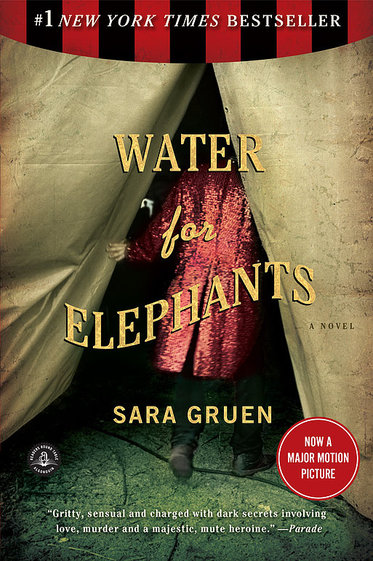 Written by Lauryn Smith Sara Gruen’s “Water for Elephants” is my favorite book. It is the best. The absolute best. The story’s plot is unusual, but, man, is it presented well. “Water for Elephants” is the fictional story of Jacob Jankowski, who in his twenties loses his parents in a car crash. Despondent and penniless, he walks out of his final veterinary school examination, and after hours of wandering, jumps a random freight train. It is what this train holds that changes his life. Gruen presents Jacob’s tale as if it were being told by his adult self, or rather his 90- (or 93-) year-old self. Widowed and alone in a nursing home, Jacob rejects the life he is now forced to live—mushy and flavorless food, tranquilizers, sponge baths, supervised trips to the bathroom. But one day, the circus sets up shop in the parking lot across the street, exciting all of the facility's residents, Jacob in particular. Why? Because that train he jumps as a young man belongs to the Benzini Brothers Most Spectacular Show on Earth—a traveling circus. As luck would have it, the Benzini show needs a veterinarian, giving Jacob enjoyable, albeit dirty, work. In this glamorous, lively retreat in a United States afflicted with prohibition and the Depression, Jacob finds love and passion—as well as wickedness. 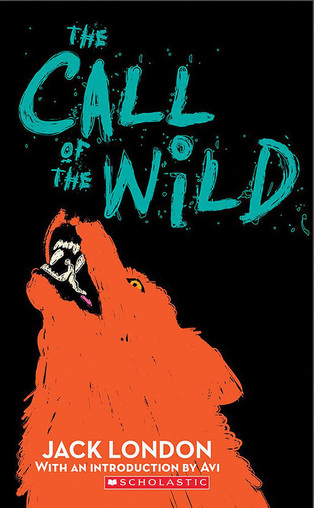 Written by Lauryn Smith Jack London’s “The Call of the Wild” is an old tale, a children’s story told from a sled dog’s point of view. And it is remarkable. Writing from the perspective of Buck, an impressive St. Bernard and Shepard mix, London gets readers to feel all the feels as he tells about the 1890s Klondike Gold Rush in the Yukon. To create the piece of historical fiction, he uses the knowledge he gathered during his own year of prospecting gold in the harsh, frigid territory. London focuses on the life of Buck, who is stolen from his lush California home in order to be sold to prospectors and taken to traverse the icy trails of Alaska and northern Canada. Buck’s journey, which involves beatings with a club, new masters, fights for food, brawls with other sled dogs and struggles for survival, incites in him the instincts of his wild ancestors and calls on his strength of spirit. The trek transforms him from loyal pet to uninhibited, and at times aggressive, animal. This adventure story, artfully told with beautifully simple language, is definitely appealing to all ages. I can go on and on describing ways in which “The Call of the Wild” is great for young people to read, like its lessons regarding adaptability, inner strength, respect for authority and respect for nature. But this is no cookie cutter kiddy book. 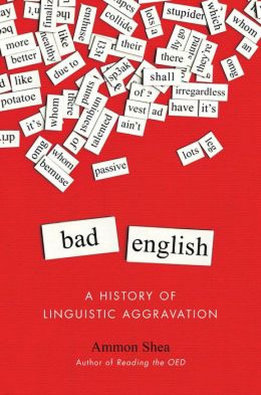 Written by Lauryn Smith Hopefully my review of Ammon Shea’s “Bad English” leaves no stone unturned, literally bemusing you because it ain’t boring irregardless of your interest in linguistics. Did anyone cringe at my depraved use of the English language in that opening sentence? Good. I intended that, and Shea was my inspiration. In his nonfiction book “Bad English,” Shea delineates the language's history, illustrating the worries, objections and complaints of grammarians throughout the ages. In doing so, he intentionally commits linguistic crimes and provides examples of historic and contemporary linguistic "mistakes," ultimately concluding that English is a hot mess but in the best way possible. Shea subtly yet successfully argues against those who take a prescriptive approach to English. He demonstrates that it is not necessary to fight over language. Instead, he shows that language is alive, that it is an interesting subject for study, debate and conversation. According to Shea, there is no right or wrong way to use English as every rule has evidence of being broken. Within the text, Shea presents both sides of the story, citing supporters and detractors of various of English’s canons. To clarify his points, he picks individual words and grammatical tendencies and follows their histories, explaining arguments and counterarguments surrounding their usage. He covers some expected terms, such as “hopefully,” “literally” and “irregardless,” but also less common ones, such as “very,” “donate” and “belittle.” |

Enjoying my book reviews? If you’ve found them helpful or simply love diving into a good book, consider supporting my caffeine-fueled reading sessions! Your contribution helps keep the reviews coming and ensures I stay wide awake for those late-night reading marathons. Cheers to a shared love for literature! ☕️
Categories
All
|
